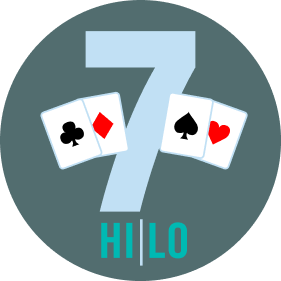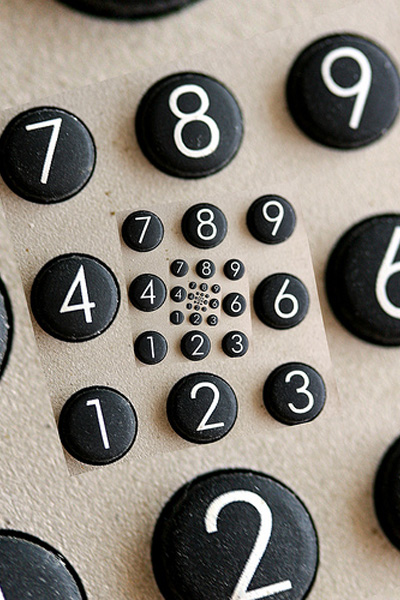Stud Hi Lo
1 When I was starting out in 1992, seven-card stud eight-or-better — a.k.a. Stud hi-low — was being touted as the game of the future, and it was spread in many poker rooms. By far, my favorite poker game is Stud Hi-Lo (also called seven-card stud: eight or better, stud-eight, or simply eight-or-better). This game combines elements of split game poker along with stud. Like all split games, your goal is to scoop pots-not win half of a pot.
Seven Card Stud – Classic Poker
Seven Card Stud can take years, or even a lifetime, to master. Players are dealt one card at a time in 7 card stud, with betting rounds after each card is dealt. Players can fold and exit the hand at any time, or stay in until they receive the maximum 7 cards. After the 7th card is dealt, the players best 5 card hand determines the winner. Seven Card Stud can be played as no-limit and pot-limit, but by far, the most popular form is fixed limit seven card stud.
The WSOP will offer 2 standard Seven-Card Stud tournaments in 2019, with a $1,500 buy-in and $10,000 buy-in. The WSOP uses the typical fixed limit format for betting, with 60 minute levels. Seven-Card Stud is also offered as part of the H.O.R.S.E. and Eight-Game tournaments.
Seven-Card Stud Hi-Lo Strategy
By far the soundest method of play at high-low is to play for low with the first three cards dealt. If you start with low cards, you have a chance to wind up with a straight or possibly a flush or a straight flush which will win high for you, and at the same time your low cards may give you a low hand and you may win the entire pot.
Playing for high at the start, you may win high, but it is practically certain that you will never win low also.

You may ask, “If most players play for low, isn’t it a good idea for me to play high?” If you are playing for low and a high card hits your hand, automatically eliminating your chances for a possible straight or flush, drop out. But when you are playing for high and hold a fairly high pair, you usually play right through.
In short, a player who insists on starting out with a high hand must lose in the long run.
Stud Hi Low Strategy
7 card stud poker variations
The following seven card stud poker variations can make the game more exciting, more interesting, and make the betting more spirited. However, if you want to be a good poker player, you should thoroughly understand the rule differences and any changes in probability and odds before playing any of the seven card stud poker variations discussed below.
Seven Card Spit
This is an overall term for a comparatively new group of games which are actually variations of seven card stud, borrowing the center card feature from Spit in the Ocean primarily to speed the action and accommodate more players. However, as with all such innovations, this resulted in new poker variations which took on individualities of their own. Let’s take a look at some of these poker variations.
Seven Card Mutual

This style of poker variations is regular seven card stud with one notable exception. After each player is dealt two down cards, the next card is dealt face up on the table to serve as everyone’s first up card. Players bet according to their hole cards and the mutual up card; then three more up cards are dealt in the same fashion, making four mutual up cards in all, each followed by a betting round. Finally, each player is dealt another down card and there is one more betting round, after which each player shows his best five cards. This seven card stud poker variations game can accommodate as many as sixteen players, with three hole cards each and four mutual up cards in the center. Bets are made in rotation from the dealer’s left.

Omaha
This style of poker variations is patterned after Seven Card Mutual, but with two points of difference. After each player is dealt two down card, there is an immediate betting round. Following that, mutual up cards are dealt singly, each followed by a betting round, right to the end. Hence, instead of each player receiving a final down card, the seventh card is another up card, mutual to all hands. Since each player receives only two down cards, this seven card stud poker variations game can accommodate 24 players before the pack is exhausted.
Mutual of Omaha
This style of poker variations is exactly like Omaha but with an insurance proviso that adds zip to the game. After the seventh card has been dealt, there is a pause before the final betting rounds; and each player, beginning at the dealer’s left, has the privilege of buying an extra down card for a specified price. That can be half the size of the pot as it stands at the start of final round; or in a low-limit game, it can be an amount equal to the entire pot. In either case, each player who insures his hand must contribute that amount to the pot.
Stud Hi Lo Poker
Let’s assume a player is holding the king and nine of diamonds as down cards, with the jack of diamonds, nine of spades, king of spades, ten of hearts and five of diamonds as the five mutual up cards. All he has is two pair (K-K-9-9), but he has four chances of picking up a king or a nine for a full house. Failing that, he has nine chances for a flush if he is dealt a diamond; and four chances for a straight if he gets a queen (K-Q-J-10-9). Buying an insurance down card would be a wise investment.


Amarillo
Stud Hi Lo Hand Rankings
Omaha again, but in this case with restriction. These cards are dealt exactly as in Omaha but in making up his hand, a player must use both hole cards among the five he chooses. Ordinarily, whenever the five up cards from a pat hand, as a straight, flush or full house, all players would disregard their hole cards and simply split the pot, unless one could come up with a higher top card for a straight or a flush. But in Amarillo, there would be no pot splitting, as each player would have to make up whatever he could by adding his two hole cards with three of the up cards. Of course, if a diamond flush should be showing on the board and he happened to hold two diamonds in the hole, he would be sitting pretty. But that seldom happens.
Learn how to play this classic poker game from PokerStars Pro Daniel Negreanu: